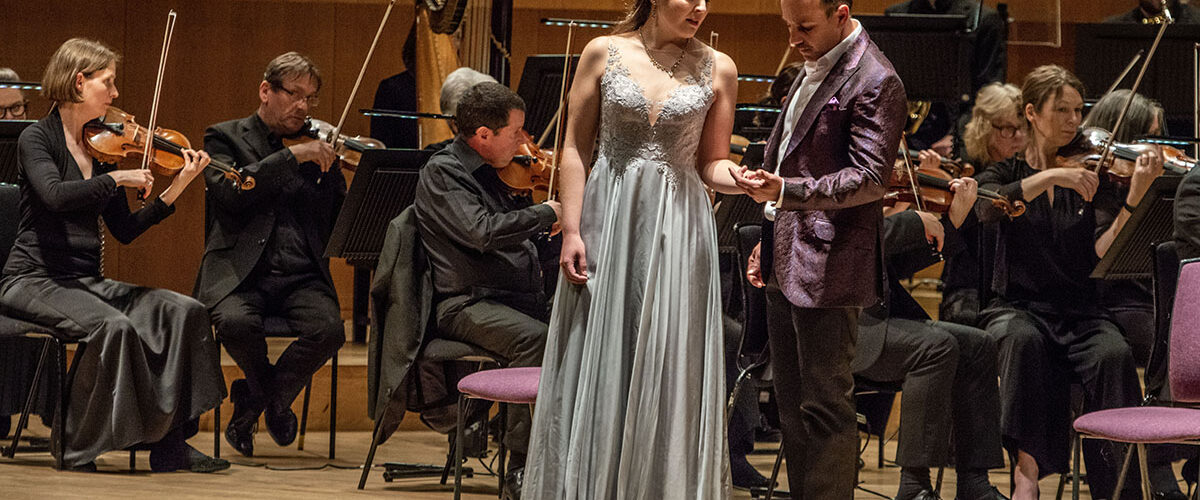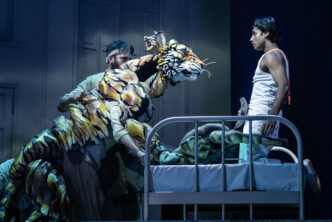The Bridgewater Hall currently represents the last time great architecture was permitted to plant foot in Manchester (Discuss). It is, in itself, a reason to visit the city – the quiet northern confidence of its burly, open-faced exterior, the remarkable theatricality of its interior gathering spaces (in which the potentially fatal nuisance of passing trams is alchemically transmogrified into diverting spectacle) and, above all, the auditorium, where monastically firm seats dispense human-scale legroom, unhindered sight-lines and a puritanically honest acoustic (let’s not even mention the engineering wonders underpinning this marvel).
What might the twenty-four year old, Georges Bizet (for such he was when he wrote the piece) have learned from hearing his opera The Pearl Fishers, performed here? A ‘concert performance’ (i.e. one without costume or set) leaves the music with no place to hide – this scrutiny of the “unclothed” form shows up weaknesses and blemishes but, taken as a whole, a figure to admire.
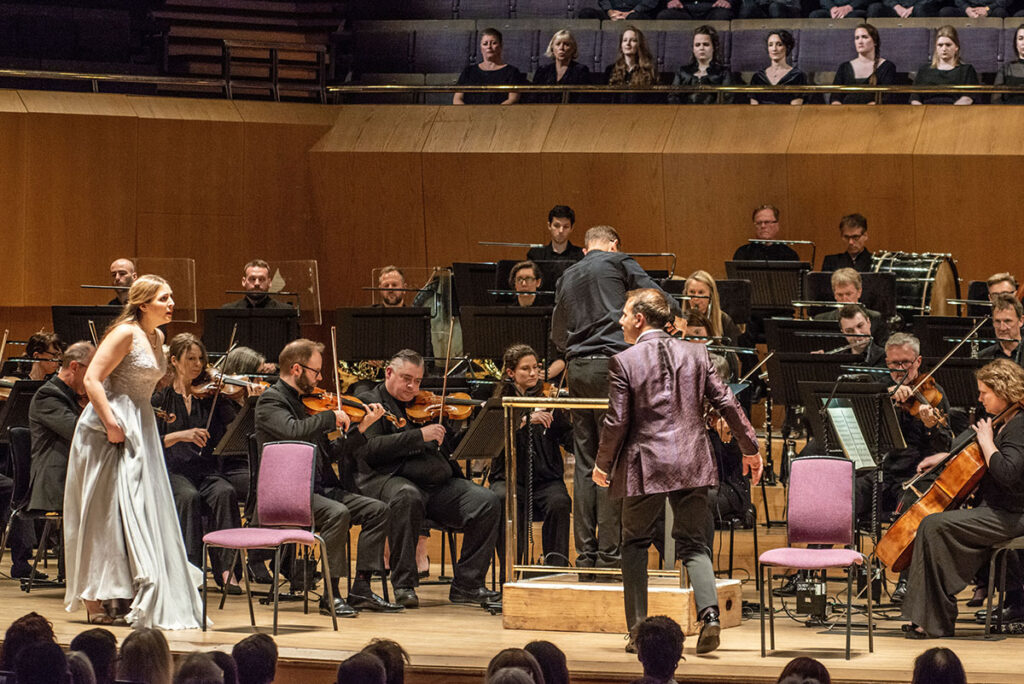
There is, of course, the famous duet (baritone and tenor) as reunited boyhood friends (Nadir and Zurga) not only reaffirm their bond but also (at Nadir’s urging) reminisce on the cause of their schism (their mutual adoration for the beautiful Leïla). This piece has become so well-known and beloved (and the rest of the opera so rarely performed) that it is difficult not to feel (a mere 15 minutes into a two hour performance) that the highlight has been reached too soon (albeit the motif is repeated throughout).
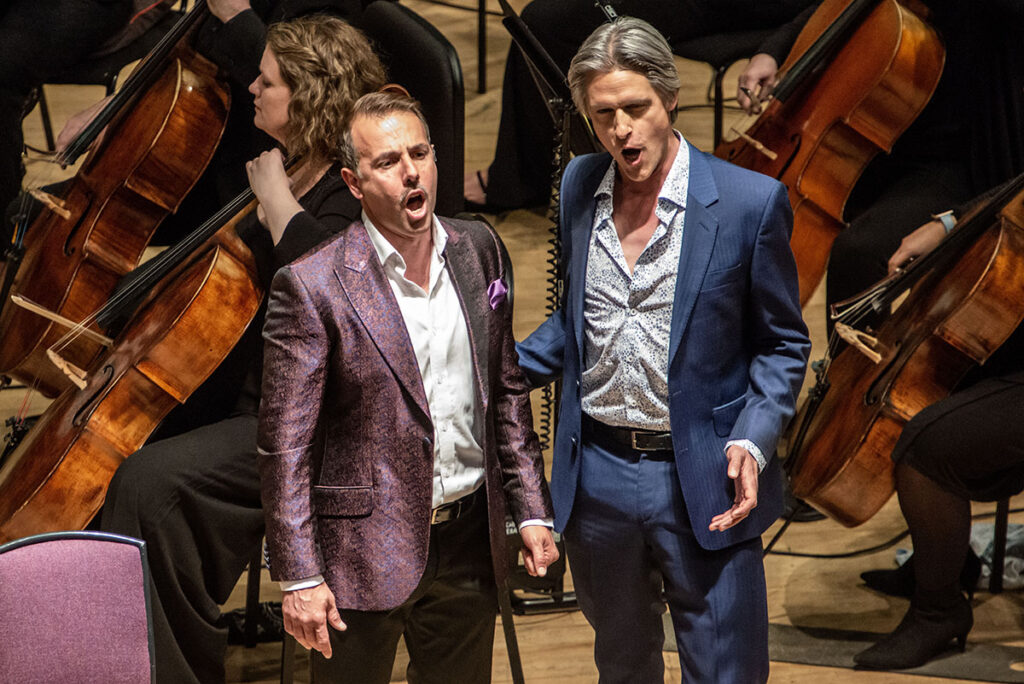
Even though there isn’t actually much plot (no scene, for example, deals with the eponymous hazardous activity), nevertheless there is a feel of an opera rushing from one moment to the next. Zurga has just been elected leader of the fishermen when Nadir emerges from the forest, minutes later the venerated priestess comes ashore. Her prayers and songs we are told – in tandem with her solemn pledge to remain a virgin – will appease the god and keep the fishers safe while at work beneath the waves.
This being opera, the priestess turns out to be none other than the beautiful Leïla, the very woman both men foreswore in order to save their friendship. Under cover of darkness, Nadir penetrates Leïla’s haven of religious solitary confinement (not a euphemism), but the two are caught and Zurga is called upon to pass sentence. Torn between duty to his tribe, his moral sensibilities and his manly jealousy, what will Zurga choose and what fate will thus befall the love-smitten Nadir and the lovely priestess?
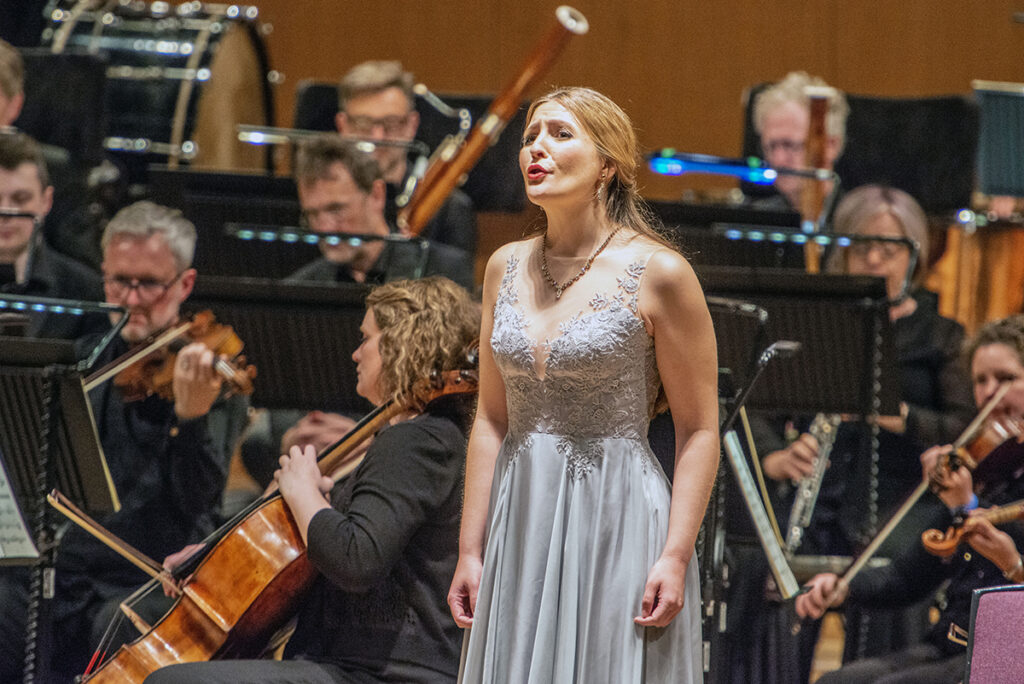
Leïla’s character feels underwritten – too much coloratura (ably delivered by Opera North debutante, Sophia Theodorides), too little dramatic truth (a weakness Bizet solved spectacularly, 10 years on, with the archetypal femme fatale Carmen).
Lacking dramatic focus, the approach to the finale is overburdened with crescendos and musical false endings. Even at the time, many of these flaws were put down to the librettists (Michel Carré and Eugène Cormon). By 1875, Bizet knew better, a change of librettists, Henri Meilhac and Luduvic Halévy, served him better and, Carmen (initially thought scandalous) has become one of the most popular and performed of all operas.
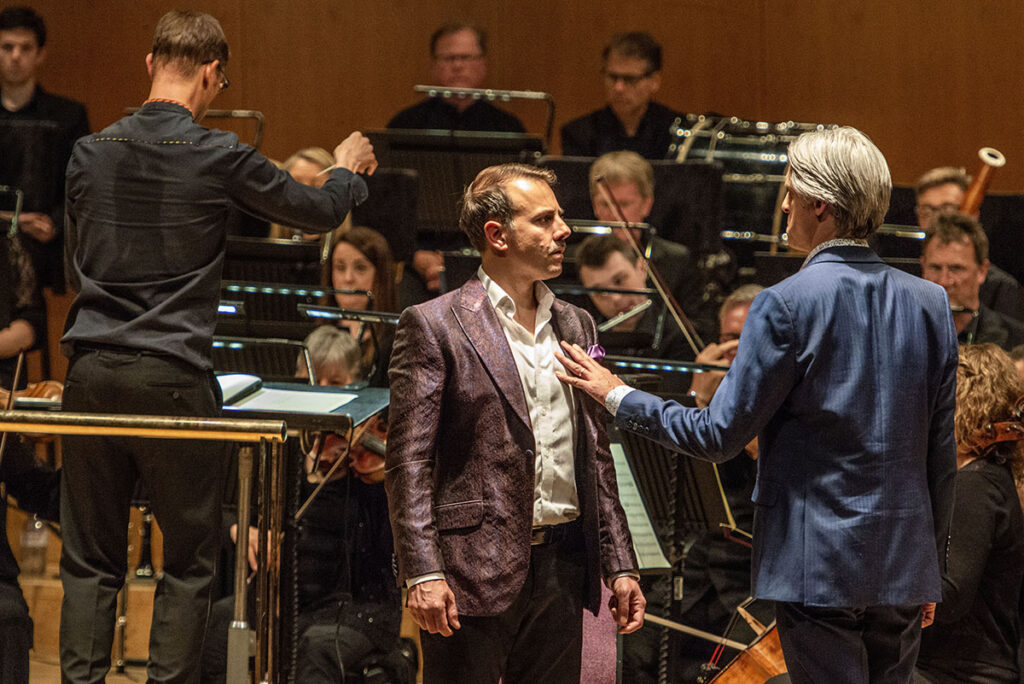
Shortcomings set aside (and forgiven), tonight’s performance offers multiple pleasures. The beloved duet is handsomely delivered by Quirijn de Lang (Zurga) and Nico Darmanin (Nadir). De Lang is the vocal star of the evening – uneasy with the power of his election as “king” of the pearl fishers, tortured by love, jealousy, honour, we feel his pain.
As a tenor, Darmanin may lack the ‘attack’ so admired since Pavarotti came to rule the world, but he sings arias in a style reminiscent of the great Giuseppe di Stefano: each word caressed and comprehended before delivery. Not quite at his peak tonight (I suspect he relishes the all-enveloping sense of character inspired by a full costume production), he remains capable of a sensitivity and subtlety to be cherished.
Theodorides gets and deserves a warm welcome from the Manchester audience. She has the air of one who can act as well as sing. I look forward to watching and hearing her in future roles.
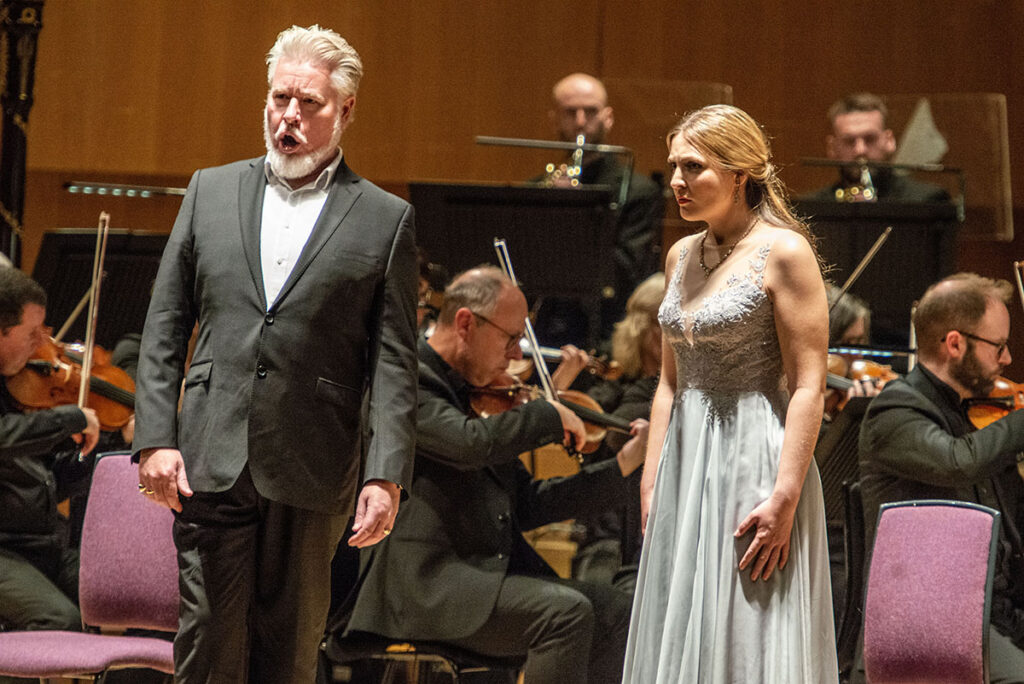
James Cresswell isn’t given much to sing as Nourabad, but he brings strength and sincerity to his moments.
Opera North boasts an orchestra to be proud of (conducted by the indefatigable Matthew Kofi Waldren, and a chorus to be immensely proud of (mastered to perfection by Oliver Rundell).
A great Yorkshire institution welcomed into the home of Lancastrian* classical culture. A cause for celebration – come back soon.
* The author steadfastly refuses to recognise the bureaucratic state of Greater Manchester.
Opera North’s The Pearl Fishers by Georges Bizet was at The Bridgewater Hall on 8 June 2023 and is touring until 1 July.

